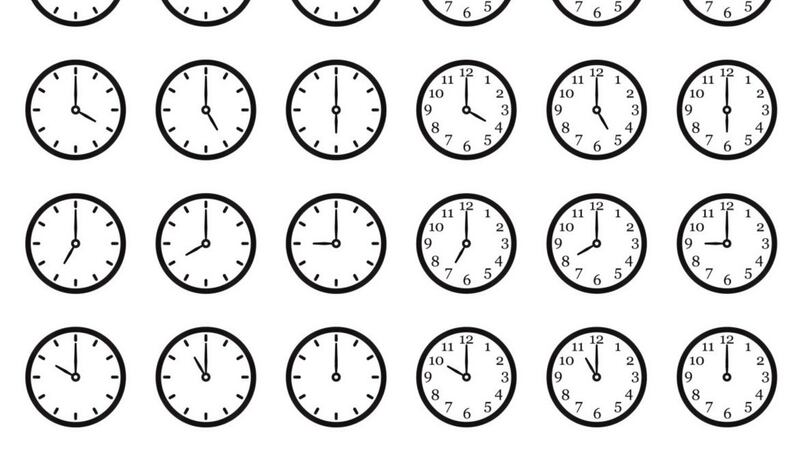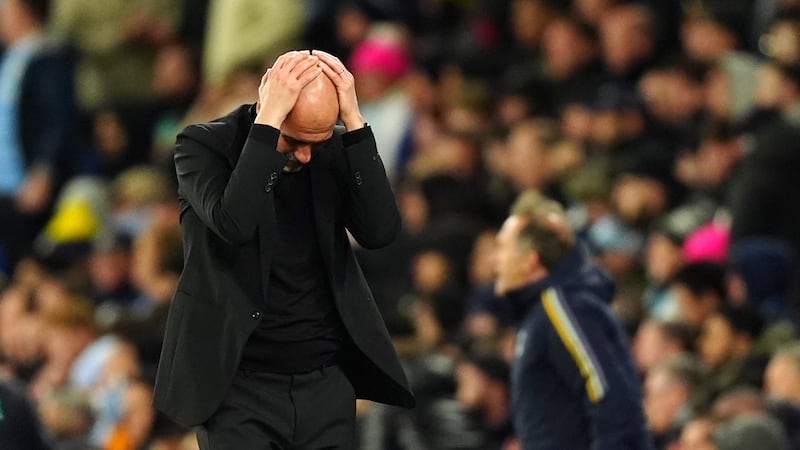MANY times over the years when friends have moaned about what a ‘handy’ number I have, I point out that it’s largely ‘an office job’, and rarely glamorous, even at matches.
Never thought I’d miss going into that office…I even miss hanging around in corridors, trying to catch a player’s eye, especially if they’re semi-clad or even naked.
Yet although my mind does have a tendency to remember bad moments more than the good, even embarrassing encounters can bring back a smile.
There was the opposite of corridor diplomacy, when a legendary name biffed an over-officious official in order to force his way into the triumphant Down dressing room.
Even at my callow stage then I would have known not to stand in that man’s way.
Looking back, here are a few lessons I did learn from awkward moments on duty...
#1: Never ask THAT question:
Once, after a surprising Ulster SFC semi-final result, myself and a colleague from another paper were interrogating the losing manager.
Knowing the situation, I took the lead and asked question after question until my next question was likely to be ‘Who am I?’ or ‘What am I doing here?’
But I was determined not to ask THAT question, the one that was hanging in the air, like a fart that no wanted to acknowledge: ‘Are you going to resign?’
The other reporter stepped in – and asked it straightaway.
The manager exploded (not quite literally): ‘That’s your first question? That?’
It didn’t matter that it was really question number 12.
In contrast, I looked like a top fella, and the manager in question and I had a great night’s craic drinking together in Bundoran a year or two later.
Don’t ask me for any memories of that, though…
#2: Send someone else to report on the replay:
Player ratings are probably the most read part of the sport section – particularly by the players themselves.
Introducing myself to a victorious player in the tunnel area after an Ulster SFC replay, his happy mood after a convincing win quickly evaporated.
Despite his team triumphing by 15 points, he was still irked by a comment printed after the high-scoring drawn game:
Glaring at me, he declared: ‘You’re the boy that said I was slow.’
‘No, I didn’t,’ I replied. ‘I said you were susceptible to pace’.
‘Well, I’m quick, but he’s a flying machine’.
To be fair to him, he still gave the interview.
#3: Always know your exits
Getting into grounds can be hard enough when there’s a jobsworth on the gate and you’ve forgotten your pass, or forgotten to send that email.
Getting out of them can be even tougher.
‘Go out through that far gate’, you’re told by the man locking up. ‘I’ll leave it unlocked.’
He doesn’t.
Nor are any of the others unlocked, no matter how hard or how often you shake the padlocks.
I’ve had to climb out of several ground, and they always seem to be street-side stadia, like Markievicz Park or O’Connor Park.
It’s hard to look dignified sliding down a wall or a solid metal gate while trying not to drop a laptop bag.
Yet that recent trip to Tullamore, all 330 miles round, has now taken on hazy, happy glow, as it was the last game I attended.
I’d climb into a ground now if there was a match to report on
#4: Don’t ‘fall’ asleep:
Also known as ‘Remember when the clocks go forward’.
This lesson does not apply to anyone with young children.
Long before Slaughtneil was famous far beyond its immediate environs I was slated to cover a Derry hurling match there.
No problem, I’d sourced directions from a local familiar with the ‘Boogie’ there.
Problem: a combination of a Saturday night beer or two and heavy drape curtains meant that I slept soundly. And slept. And slept.
Even when I woke, there was no rush, with a leisurely breakfast repast enjoyed before something on the TV alerted me that it was actually an hour later in the day than I thought.
Cue a frantic drive to Slaughtneil, the only bonus being that there was little traffic on the roads as the decent-sized crowd was already at the ground.
Then a different sort of Sunday ‘walk of shame’, creeping round the pitch towards the end of the first half, trying to hide my laptop. To no avail.
Fortunately, for the purposes of the report, the second half was much more exciting and meaningful. Honest.
#5: Don’t always tell the truth:
Attending an Allstars function many moons ago, I was approached by an awestruck member of the public, asking: ‘Are you Ollie Murphy?’
Instead of making their night, saying ‘Yes’, posing for photographs and signing autographs as if I were the Meath forward, I replied along the lines of: ‘Do you really think Ollie Murphy is this fat?’
I had a similar experience in a Dungannon newsagent’s, although that time I was asked if I were Ian Hislop; I wasn’t even browsing through ‘Private Eye’ at the time.
#6: Don’t question a manager’s selection or tactics:
Early enough in my career covering international soccer Northern Ireland were well beaten away by Spain. The 3-0 result wasn’t realty a surprise – but Sammy McIlroy’s decision to start Keith Gillespie as a lone centre-forward instead of David Healy had been a shock.
In the post-match press conference I naively decide to query that selection decision, leading an irked boss to ask his own question – when was the last time Healy had scored an international goal?
‘More recently than Keith,’ was my reply.
Sammy fired a follow-up question at me, in a strange turn of events, enquiring about how many saves Maik Taylor had to make.
Chuckling nervously at being the centre of attention, this time I wisely refrained from making the obvious retort ‘Well, at least three…’
Needless to say, like that sports media legend Alan Partridge, I had the last laugh, as Healy went on to before NI’s record goalscorer by far.
#7: Don’t do interviews near Gerry Donnelly:
The legendary former Derry PRO was always accommodating and affable with the media; sometimes he even let you talk to and about the players.
On one such occasion Gerry D directed me into the treatment room at Owenbeg in order to interview a player who couldn’t run away from me onto the training pitch.
Polite as ever, I enquired: ‘Can I use my Dictaphone?’
‘No,’ said Gerry, quick as a shot: ‘Just use your finger like anyone else.’








